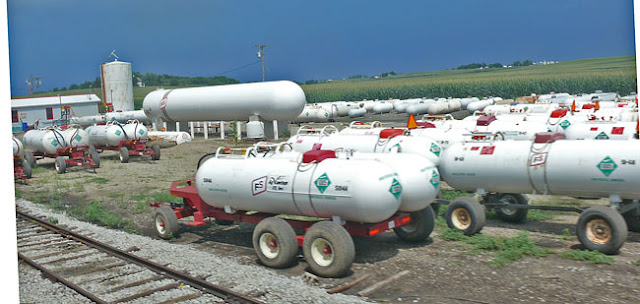Court rules OSHA must go through rulemaking on PSM change
By Spencer Chase
Agri-Pulse Communications, Inc.
WASHINGTON, Sept. 23, 2016 - The Occupational Safety and Health Administration acted illegally when it imposed new safety requirements on fertilizer dealers without giving them a chance to comment, the D.C. Circuit Court of Appeals ruled Friday.
In its decision, the court ruled that OSHA acted outside the bounds of the Occupational Safety and Health Act when it redefined “retail facility” exemptions to the Process Safety Management Standard.
OSHA tightened the standard following the West Fertilizer facility explosion in 2013, caused by a fire that detonated between 40 and 60 tons of fertilizer grade ammonium nitrate. The explosion at the plant in West, Texas, killed 15 people, including 12 first responders, and caused widespread damage to more than 150 nearby buildings.
Before the rule change, facilities that derived more than half their income from direct sales to end users were exempt from the PSM requirements, which apply to facilities that handle toxic chemicals. After the change, however, ag dealers who sell anhydrous ammonia to farmers were swept into the regulatory net.
But when OSHA removed the retailer exemption, it did so without requesting public comment, which gave the Agricultural Retailers Association and The Fertilizer Institute the procedural angle for their lawsuit.
“OSHA made a bad decision in regulating ammonia in response to an ammonium nitrate incident, and the agency made that decision incorrectly,” ARA President and CEO Daren Coppock said in a press release. “Although ARA could only challenge on the procedural point and not the decision itself, we're still very pleased to see the court rule in our favor and to provide this relief to our members.”
ARA Chairman Harold Cooper called the court's ruling “a big win.” He pointed out that the retailer exemption in question had been in place “for more than 20 years and OSHA should not have redefined it without an opportunity for stakeholders to comment.”
Until OSHA completes a formal rulemaking process, which ARA said could take several years, ag retailers remain exempt from compliance with PSM requirements.
Sen. John Hoeven, R-N.D., who had been working with ARA on Capitol Hill on the issue, said he was glad to see the ruling, which “sends OSHA back to square one to ensure that producers are heard. That's essential not only because the regulation would be a hardship for farmers, but also because consumers will ultimately foot the bill paying higher food prices.”
ARA and TFI estimated the new requirements could cost each retail facility $25,000. OSHA's estimate was $2,500. Before the court ruling, OSHA had said the requirements would go into effect Oct. 1.




